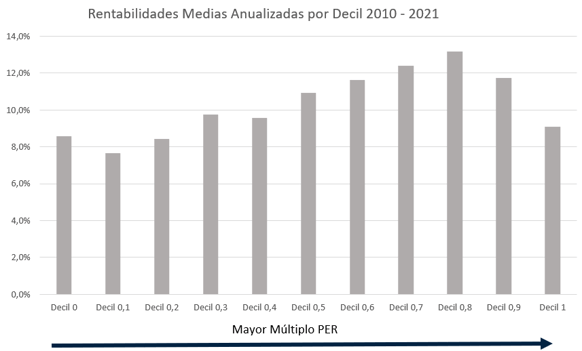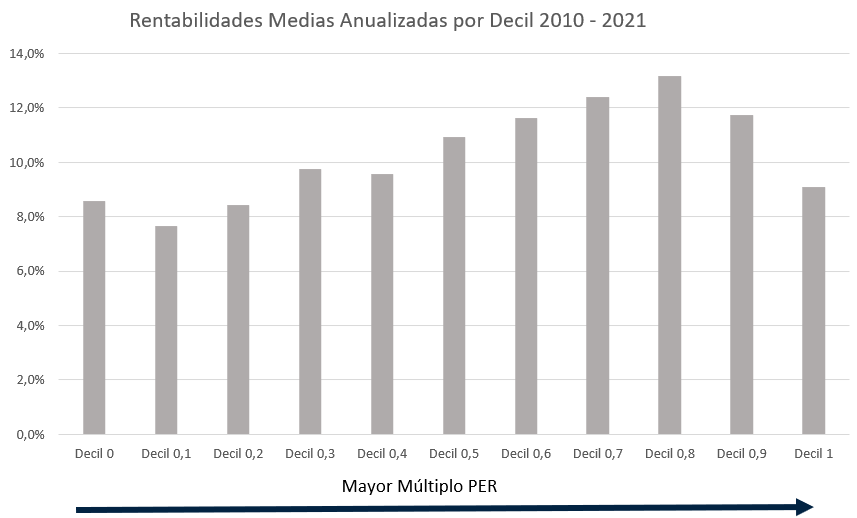Are cheap companies a better investment?
Financial logic tells us that companies with a lower PE Ratio are cheaper and, consequently, those with higher potential.
If this is true, why don't we just buy companies with the lowest multiples?
As we can see in the graph, companies with lower multiples have not done better on the stock market, at least since 2010. In fact, in recent years the opposite has happened: on average, companies with higher multiples have been a better investment in terms of profitability.

There are several answers to the question of why this has happened, but in this article we are going to name the most important:
Value Traps
The price at low multiples is probably due to value traps: something that apparently may be cheap, has a reason to be. All that glitters is not gold.
If the companies with a lower PE Ratio are a better investment, the market would have already arbitrated it
Efficient markets theory tells us that all information is already embedded in the stock price. Therefore, it would not make sense for us to try to "beat" the market, and if we do, it will be due to luck.
If this is true, companies with very high multiples and those with low multiples should have produced a similar profitability. In the graph, all the deciles would be the same size.
Very low rates and very dovish monetary policy
In theory, the value of a company comes from updating its future Cash-Flows at a discount rate. This valuation method tries to predict the Cash-Flows of companies, as well as their growth rate (g) and their cost of capital (WACC).
Then, growth companies with higher multiples tend to be more affected by the inputs of the model, especially growth rates and the cost of capital, since their Cash-Flows are further apart in time.
At the end of the day, dovish monetary policies lowers the cost of capital for companies. Apparently, changes in the cost of capital will have a greater effect on the valuations of growth companies than in value companies.
Therefore, it is possible that the decreases in the costs of capital brought about in recent years by central banks have caused these types of companies to appreciate more.
In conclusion, when we try to analyze a company we always have to ask ourselves why it is trading at current multiples. Probably, the explanation behind it can be much more valuable than the company's own numbers.

